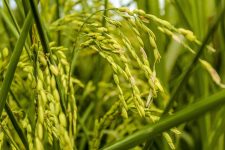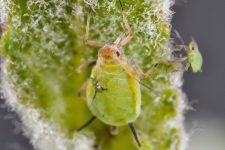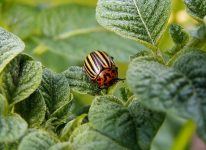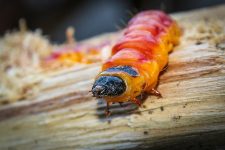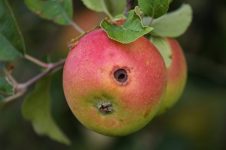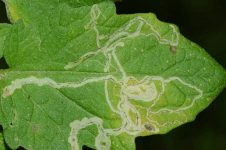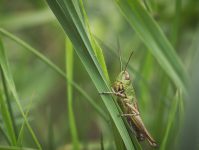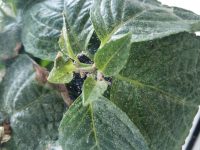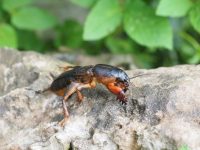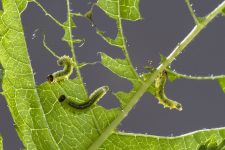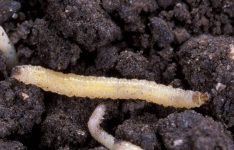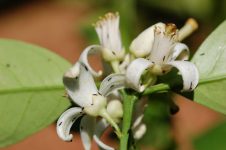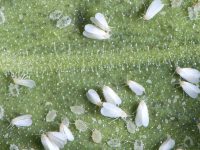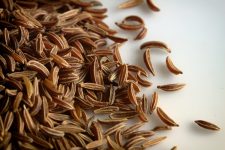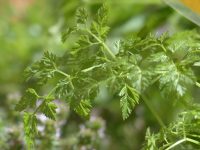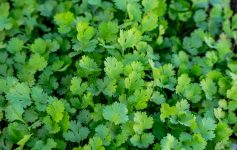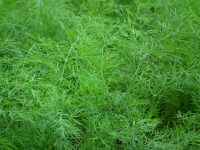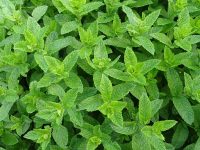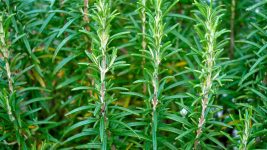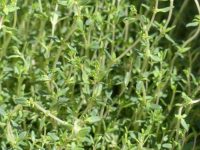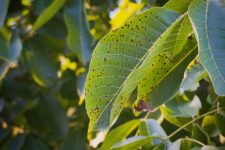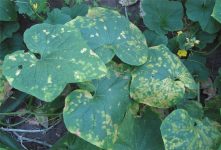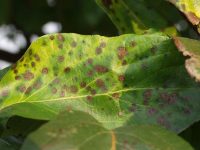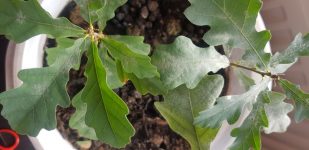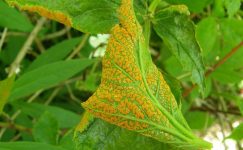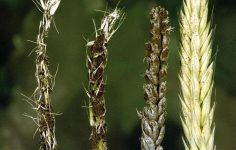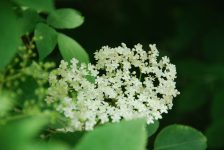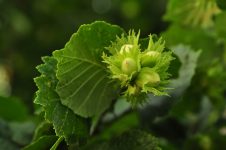Toggle Nav
All Plants
Cart
nz
Store
Find Your Store
By selecting your region, you'll have access to the right catalogue
Choose your Area
This will help estimate delivery schedule and fees
✕
-
 Abutilon
Abutilon
-
 Acalypha
Acalypha
-
 Aechmea
Aechmea
-
 Aeschynanthus
Aeschynanthus
-
 Aglaonema
Aglaonema
-
 Alocasia
Alocasia
-
 Aloe
Aloe
-
 Anthurium
Anthurium
-
 Araucaria
Araucaria
-
 Ardisia
Ardisia
-
 Aspidistra
Aspidistra
-
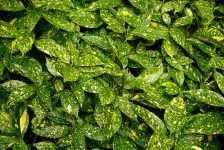 Aucuba
Aucuba
-
 Avocado
Avocado
-
 Azaleas
Azaleas
-
 Banana tree
Banana tree
-
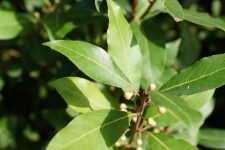 Bay laurel
Bay laurel
-
 Beaucarnea
Beaucarnea
-
 Begonia
Begonia
-
 Billbergia
Billbergia
-
 Bonsai
Bonsai
-
 Bougainvillea
Bougainvillea
-
 Cactus
Cactus
-
 Calathea
Calathea
-
 Calla lily
Calla lily
-
 Callistemon
Callistemon
-
 Camellia
Camellia
-
 Capsicum
Capsicum
-
 Chamaedorea
Chamaedorea
-
 Chlorophytum
Chlorophytum
-
 Citrus
Citrus
-
 Clivia
Clivia
-
 Codiaeum
Codiaeum
-
 Coffee tree
Coffee tree
-
 Cyclamen
Cyclamen
-
 Dieffenbachia
Dieffenbachia
-
 Dionaea muscipula
Dionaea muscipula
-
 Dipladenia
Dipladenia
-
 Dracaena
Dracaena
-
 Euphorbia
Euphorbia
-
 Ferns
Ferns
-
 Ficus
Ficus
-
 Fittonia
Fittonia
-
 Fuchsia
Fuchsia
-
 Gardenia
Gardenia
-
 Gerbera
Gerbera
-
 Gloxinia
Gloxinia
-
 Guzmania
Guzmania
-
 Gynura
Gynura
-
 Hippeastrum
Hippeastrum
-
 Hoya
Hoya
-
 Indoor ornamental plants
Indoor ornamental plants
-
 Ivy
Ivy
-
 Jasmine
Jasmine
-
 Kalanchoe
Kalanchoe
-
 Lobster-claws
Lobster-claws
-
 Lucky bamboo
Lucky bamboo
-
 Madagascar jasmine
Madagascar jasmine
-
 Mango
Mango
-
 Maranta
Maranta
-
 Mimosa
Mimosa
-
 Monstera
Monstera
-
 Murraya
Murraya
-
 Oleander
Oleander
-
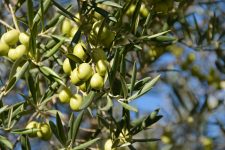 Olive tree
Olive tree
-
 Orchids
Orchids
-
 Oxalis
Oxalis
-
 Pachira
Pachira
-
 Palm trees
Palm trees
-
 Passiflora
Passiflora
-
 Pelargonium
Pelargonium
-
 Peperomia
Peperomia
-
 Philodendron
Philodendron
-
 Pilea
Pilea
-
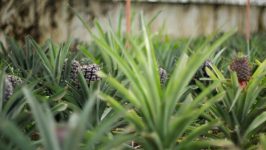 Pineapple
Pineapple
-
 Plumeria
Plumeria
-
 Pothos
Pothos
-
 Primula
Primula
-
 Rhipsalis
Rhipsalis
-
 Saintpaulia
Saintpaulia
-
 Sansevieria
Sansevieria
-
 Schefflera
Schefflera
-
 Senecio
Senecio
-
 Shoeblackplant
Shoeblackplant
-
 Solanum
Solanum
-
 Spathiphyllum
Spathiphyllum
-
 Strelitzia
Strelitzia
-
 String-of-pearls
String-of-pearls
-
 Succulents
Succulents
-
 Tillandsia
Tillandsia
-
 Tradescantia
Tradescantia
-
 Vriesea
Vriesea
-
 Yucca
Yucca
-
 Zamioculcas
Zamioculcas
-
 Zebra-plant
Zebra-plant
-
 Abelia
Abelia
-
 Albizia
Albizia
-
 American sweetgum
American sweetgum
-
 Annual honesty
Annual honesty
-
 Arborvitae
Arborvitae
-
 Asian bleeding-heart
Asian bleeding-heart
-
 Astilbe
Astilbe
-
 Autumn crocus
Autumn crocus
-
 Balloon flower
Balloon flower
-
 Bamboo
Bamboo
-
 Barberry
Barberry
-
 Birch
Birch
-
 Black locust
Black locust
-
 Black-eyed Susan
Black-eyed Susan
-
 Boxwood
Boxwood
-
 Brugmansia
Brugmansia
-
 Calluna
Calluna
-
 Campsis radicans
Campsis radicans
-
 Carnations
Carnations
-
 Catalpa
Catalpa
-
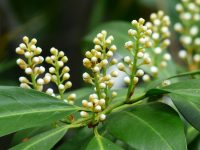 Cherry laurel
Cherry laurel
-
 Chocolate vine
Chocolate vine
-
 Chrysanthemum
Chrysanthemum
-
 Clematis
Clematis
-
 Common hawthorn
Common hawthorn
-
 Common privet
Common privet
-
 Common zinnia
Common zinnia
-
 Conifers
Conifers
-
 Cotinus
Cotinus
-
 Cotoneaster
Cotoneaster
-
 Crepe-myrtle
Crepe-myrtle
-
 Cypress
Cypress
-
 Daffodils
Daffodils
-
 Dahlia
Dahlia
-
 Damask rose
Damask rose
-
 Dense blazing star
Dense blazing star
-
 Deutzia
Deutzia
-
 Diascia
Diascia
-
 Dog-rose
Dog-rose
-
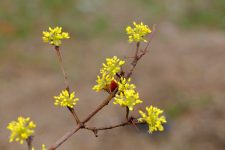 Dogwood
Dogwood
-
 Egyptian starcluster
Egyptian starcluster
-
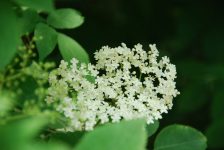 Elderflower Ornamental
Elderflower Ornamental
-
 Elm
Elm
-
 English dogwood
English dogwood
-
 Euonymus
Euonymus
-
 Evergreen candytuft
Evergreen candytuft
-
 Everlasting flowers
Everlasting flowers
-
 Fairy fan-flower
Fairy fan-flower
-
 Fir tree
Fir tree
-
 Florentine Iris
Florentine Iris
-
 Forsythia
Forsythia
-
 Freesia
Freesia
-
 Gazania
Gazania
-
 Ginkgo Biloba
Ginkgo Biloba
-
 Gladioli
Gladioli
-
 Great masterwort
Great masterwort
-
 Heartleaf Bergenia
Heartleaf Bergenia
-
 Hebe
Hebe
-
 Hellebore
Hellebore
-
 Hibiscus
Hibiscus
-
 Hollyhock
Hollyhock
-
 Honey locust
Honey locust
-
 Hornbeam
Hornbeam
-
 Hosta
Hosta
-
 How it works
How it works
-
 Hyacinth
Hyacinth
-
 Hydrangea
Hydrangea
-
 Ilex
Ilex
-
 Impatiens
Impatiens
-
 Japanese cherry
Japanese cherry
-
 Japanese quince
Japanese quince
-
 Japanese skimmia
Japanese skimmia
-
 Jasmine tobacco
Jasmine tobacco
-
 Juniper
Juniper
-
 Lacy phacelia
Lacy phacelia
-
 Lamb's-ear
Lamb's-ear
-
 Lantana camara
Lantana camara
-
 Lavender
Lavender
-
 Lilac
Lilac
-
 Lilies
Lilies
-
 Lily of the valley
Lily of the valley
-
 Linden
Linden
-
 Lisianthus
Lisianthus
-
 London plane tree
London plane tree
-
 Lonicera
Lonicera
-
 Magnolia
Magnolia
-
 Mahonia
Mahonia
-
 Maple
Maple
-
 Marigold
Marigold
-
 Marvel-of-Peru
Marvel-of-Peru
-
 Mountain-laurel
Mountain-laurel
-
 Myosotis
Myosotis
-
 Norway spruce
Norway spruce
-
 Oak
Oak
-
 Ornamental Chestnut
Ornamental Chestnut
-
 Ornamental hazel
Ornamental hazel
-
 Ornamental onion
Ornamental onion
-
 Osage orange
Osage orange
-
 Outdoor Ornamental Plants
Outdoor Ornamental Plants
-
 Pampas grass
Pampas grass
-
 Pansies
Pansies
-
 Paulownia
Paulownia
-
 Peony
Peony
-
 Petunias
Petunias
-
 Phlox
Phlox
-
 Photinia
Photinia
-
 Pine
Pine
-
 Plectranthus
Plectranthus
-
 Pomegranate
Pomegranate
-
 Rhododendron
Rhododendron
-
 Rock garden
Rock garden
-
 Roses
Roses
-
 Rowan
Rowan
-
 Scarlet Firethorn
Scarlet Firethorn
-
 Shrubby cinquefoil
Shrubby cinquefoil
-
 Siskiyou lewisia
Siskiyou lewisia
-
 Snapdragon
Snapdragon
-
 Snowdrops
Snowdrops
-
 Spiraea
Spiraea
-
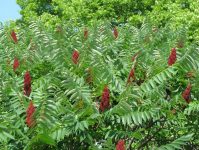 Sumac
Sumac
-
 Sweet alyssum
Sweet alyssum
-
 Symphoricarpos
Symphoricarpos
-
 Tamarisk
Tamarisk
-
 Tree of heaven
Tree of heaven
-
 Tree of Judah
Tree of Judah
-
 Tulip
Tulip
-
 Tulip tree
Tulip tree
-
 Viburnum
Viburnum
-
 Weigela
Weigela
-
 Willow
Willow
-
 Wisteria
Wisteria
-
 Zephyranthes
Zephyranthes
-
 Ants
Ants
-
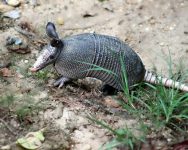 Armadillos
Armadillos
-
 Bats
Bats
-
 Beavers
Beavers
-
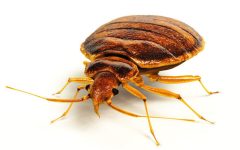 Bed bugs
Bed bugs
-
 Birds
Birds
-
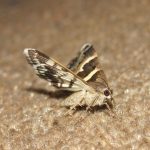 Clothes moths
Clothes moths
-
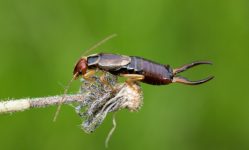 Earwigs
Earwigs
-
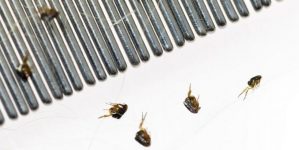 Fleas
Fleas
-
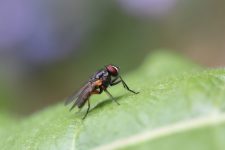 Flies
Flies
-
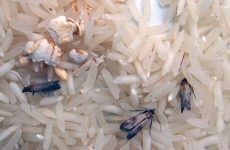 Food moths
Food moths
-
 Foxes
Foxes
-
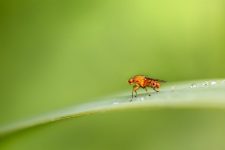 Fruit fly
Fruit fly
-
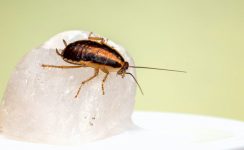 General Pest Control
General Pest Control
-
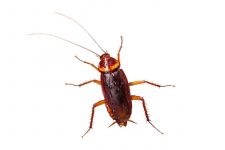 German Cockroaches
German Cockroaches
-
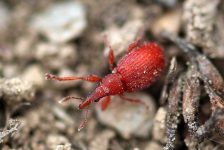 Grain weevils
Grain weevils
-
 How it works - Pest Control
How it works - Pest Control
-
 Lice
Lice
-
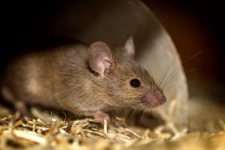 Mice
Mice
-
 Mold
Mold
-
 Moles
Moles
-
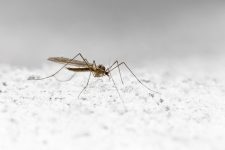 Mosquitoes
Mosquitoes
-
 Myriapods
Myriapods
-
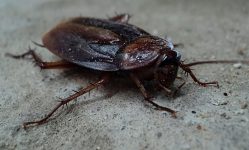 Oriental Cockroaches
Oriental Cockroaches
-
 Poultry mites
Poultry mites
-
 Rabbits
Rabbits
-
 Raccoons
Raccoons
-
 Rats
Rats
-
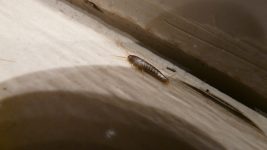 Silverfish
Silverfish
-
 Skunks
Skunks
-
 Snakes
Snakes
-
 Spiders
Spiders
-
 Squirrels
Squirrels
-
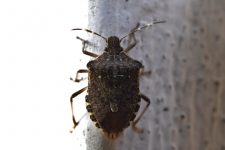 Stink bug
Stink bug
-
 Stray cats
Stray cats
-
 Stray dogs
Stray dogs
-
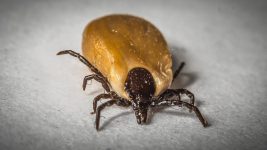 Ticks
Ticks
-
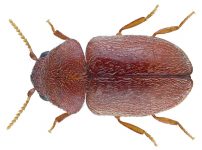 Tobacco beetles
Tobacco beetles
-
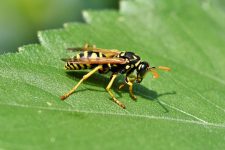 Wasps
Wasps
-
 Wild boars
Wild boars
-
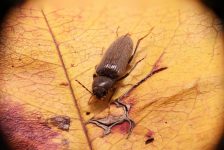 Wood borers
Wood borers
-
 Asparagus
Asparagus
-
 Beans
Beans
-
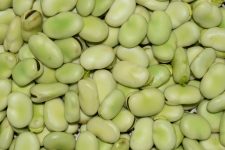 Broad bean
Broad bean
-
 Broccoli
Broccoli
-
 Brussels sprout
Brussels sprout
-
 Cabbage
Cabbage
-
 Carrot
Carrot
-
 Cauliflower
Cauliflower
-
 Celery
Celery
-
 Chickpea
Chickpea
-
 Cucumber
Cucumber
-
 Eggplants
Eggplants
-
 Fennel
Fennel
-
 Garlic
Garlic
-
 Horseradish
Horseradish
-
 Jerusalem artichoke
Jerusalem artichoke
-
 Kohlrabi
Kohlrabi
-
 Leek
Leek
-
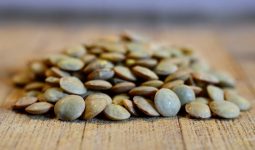 Lentil
Lentil
-
 Lettuce
Lettuce
-
 Lupine
Lupine
-
 Melons
Melons
-
 Mushrooms
Mushrooms
-
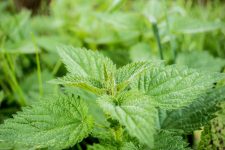 Nettle
Nettle
-
 Okra
Okra
-
 Onion
Onion
-
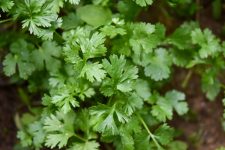 Parsley
Parsley
-
 Parsnip
Parsnip
-
 Patience dock
Patience dock
-
 Peanuts
Peanuts
-
 Peas
Peas
-
 Pepper
Pepper
-
 Potato
Potato
-
 Pumpkin
Pumpkin
-
 Radishes
Radishes
-
 Rhubarb
Rhubarb
-
 Sorrel
Sorrel
-
 Spinach
Spinach
-
 Sponge gourd
Sponge gourd
-
 Sweet potato
Sweet potato
-
 Tomatoes
Tomatoes
-
 Vitelotte
Vitelotte
-
 Zucchini
Zucchini
Store Items
-
 Abutilon
Abutilon
-
 Acalypha
Acalypha
-
 Aechmea
Aechmea
-
 Aeschynanthus
Aeschynanthus
-
 Aglaonema
Aglaonema
-
 Alocasia
Alocasia
-
 Aloe
Aloe
-
 Anthurium
Anthurium
-
 Araucaria
Araucaria
-
 Ardisia
Ardisia
-
 Aspidistra
Aspidistra
-
 Aucuba
Aucuba
-
 Avocado
Avocado
-
 Azaleas
Azaleas
-
 Banana tree
Banana tree
-
 Bay laurel
Bay laurel
-
 Beaucarnea
Beaucarnea
-
 Begonia
Begonia
-
 Billbergia
Billbergia
-
 Bonsai
Bonsai
-
 Bougainvillea
Bougainvillea
-
 Cactus
Cactus
-
 Calathea
Calathea
-
 Calla lily
Calla lily
-
 Callistemon
Callistemon
-
 Camellia
Camellia
-
 Capsicum
Capsicum
-
 Chamaedorea
Chamaedorea
-
 Chlorophytum
Chlorophytum
-
 Citrus
Citrus
-
 Clivia
Clivia
-
 Codiaeum
Codiaeum
-
 Coffee tree
Coffee tree
-
 Cyclamen
Cyclamen
-
 Dieffenbachia
Dieffenbachia
-
 Dionaea muscipula
Dionaea muscipula
-
 Dipladenia
Dipladenia
-
 Dracaena
Dracaena
-
 Euphorbia
Euphorbia
-
 Ferns
Ferns
-
 Ficus
Ficus
-
 Fittonia
Fittonia
-
 Fuchsia
Fuchsia
-
 Gardenia
Gardenia
-
 Gerbera
Gerbera
-
 Gloxinia
Gloxinia
-
 Guzmania
Guzmania
-
 Gynura
Gynura
-
 Hippeastrum
Hippeastrum
-
 Hoya
Hoya
-
 Indoor ornamental plants
Indoor ornamental plants
-
 Ivy
Ivy
-
 Jasmine
Jasmine
-
 Kalanchoe
Kalanchoe
-
 Lobster-claws
Lobster-claws
-
 Lucky bamboo
Lucky bamboo
-
 Madagascar jasmine
Madagascar jasmine
-
 Mango
Mango
-
 Maranta
Maranta
-
 Mimosa
Mimosa
-
 Monstera
Monstera
-
 Murraya
Murraya
-
 Oleander
Oleander
-
 Olive tree
Olive tree
-
 Orchids
Orchids
-
 Oxalis
Oxalis
-
 Pachira
Pachira
-
 Palm trees
Palm trees
-
 Passiflora
Passiflora
-
 Pelargonium
Pelargonium
-
 Peperomia
Peperomia
-
 Philodendron
Philodendron
-
 Pilea
Pilea
-
 Pineapple
Pineapple
-
 Plumeria
Plumeria
-
 Pothos
Pothos
-
 Primula
Primula
-
 Rhipsalis
Rhipsalis
-
 Saintpaulia
Saintpaulia
-
 Sansevieria
Sansevieria
-
 Schefflera
Schefflera
-
 Senecio
Senecio
-
 Shoeblackplant
Shoeblackplant
-
 Solanum
Solanum
-
 Spathiphyllum
Spathiphyllum
-
 Strelitzia
Strelitzia
-
 String-of-pearls
String-of-pearls
-
 Succulents
Succulents
-
 Tillandsia
Tillandsia
-
 Tradescantia
Tradescantia
-
 Vriesea
Vriesea
-
 Yucca
Yucca
-
 Zamioculcas
Zamioculcas
-
 Zebra-plant
Zebra-plant
-
 Abelia
Abelia
-
 Albizia
Albizia
-
 American sweetgum
American sweetgum
-
 Annual honesty
Annual honesty
-
 Arborvitae
Arborvitae
-
 Asian bleeding-heart
Asian bleeding-heart
-
 Astilbe
Astilbe
-
 Autumn crocus
Autumn crocus
-
 Balloon flower
Balloon flower
-
 Bamboo
Bamboo
-
 Barberry
Barberry
-
 Birch
Birch
-
 Black locust
Black locust
-
 Black-eyed Susan
Black-eyed Susan
-
 Boxwood
Boxwood
-
 Brugmansia
Brugmansia
-
 Calluna
Calluna
-
 Campsis radicans
Campsis radicans
-
 Carnations
Carnations
-
 Catalpa
Catalpa
-
 Cherry laurel
Cherry laurel
-
 Chocolate vine
Chocolate vine
-
 Chrysanthemum
Chrysanthemum
-
 Clematis
Clematis
-
 Common hawthorn
Common hawthorn
-
 Common privet
Common privet
-
 Common zinnia
Common zinnia
-
 Conifers
Conifers
-
 Cotinus
Cotinus
-
 Cotoneaster
Cotoneaster
-
 Crepe-myrtle
Crepe-myrtle
-
 Cypress
Cypress
-
 Daffodils
Daffodils
-
 Dahlia
Dahlia
-
 Damask rose
Damask rose
-
 Dense blazing star
Dense blazing star
-
 Deutzia
Deutzia
-
 Diascia
Diascia
-
 Dog-rose
Dog-rose
-
 Dogwood
Dogwood
-
 Egyptian starcluster
Egyptian starcluster
-
 Elderflower Ornamental
Elderflower Ornamental
-
 Elm
Elm
-
 English dogwood
English dogwood
-
 Euonymus
Euonymus
-
 Evergreen candytuft
Evergreen candytuft
-
 Everlasting flowers
Everlasting flowers
-
 Fairy fan-flower
Fairy fan-flower
-
 Fir tree
Fir tree
-
 Florentine Iris
Florentine Iris
-
 Forsythia
Forsythia
-
 Freesia
Freesia
-
 Gazania
Gazania
-
 Ginkgo Biloba
Ginkgo Biloba
-
 Gladioli
Gladioli
-
 Great masterwort
Great masterwort
-
 Heartleaf Bergenia
Heartleaf Bergenia
-
 Hebe
Hebe
-
 Hellebore
Hellebore
-
 Hibiscus
Hibiscus
-
 Hollyhock
Hollyhock
-
 Honey locust
Honey locust
-
 Hornbeam
Hornbeam
-
 Hosta
Hosta
-
 How it works
How it works
-
 Hyacinth
Hyacinth
-
 Hydrangea
Hydrangea
-
 Ilex
Ilex
-
 Impatiens
Impatiens
-
 Japanese cherry
Japanese cherry
-
 Japanese quince
Japanese quince
-
 Japanese skimmia
Japanese skimmia
-
 Jasmine tobacco
Jasmine tobacco
-
 Juniper
Juniper
-
 Lacy phacelia
Lacy phacelia
-
 Lamb's-ear
Lamb's-ear
-
 Lantana camara
Lantana camara
-
 Lavender
Lavender
-
 Lilac
Lilac
-
 Lilies
Lilies
-
 Lily of the valley
Lily of the valley
-
 Linden
Linden
-
 Lisianthus
Lisianthus
-
 London plane tree
London plane tree
-
 Lonicera
Lonicera
-
 Magnolia
Magnolia
-
 Mahonia
Mahonia
-
 Maple
Maple
-
 Marigold
Marigold
-
 Marvel-of-Peru
Marvel-of-Peru
-
 Mountain-laurel
Mountain-laurel
-
 Myosotis
Myosotis
-
 Norway spruce
Norway spruce
-
 Oak
Oak
-
 Ornamental Chestnut
Ornamental Chestnut
-
 Ornamental hazel
Ornamental hazel
-
 Ornamental onion
Ornamental onion
-
 Osage orange
Osage orange
-
 Outdoor Ornamental Plants
Outdoor Ornamental Plants
-
 Pampas grass
Pampas grass
-
 Pansies
Pansies
-
 Paulownia
Paulownia
-
 Peony
Peony
-
 Petunias
Petunias
-
 Phlox
Phlox
-
 Photinia
Photinia
-
 Pine
Pine
-
 Plectranthus
Plectranthus
-
 Pomegranate
Pomegranate
-
 Rhododendron
Rhododendron
-
 Rock garden
Rock garden
-
 Roses
Roses
-
 Rowan
Rowan
-
 Scarlet Firethorn
Scarlet Firethorn
-
 Shrubby cinquefoil
Shrubby cinquefoil
-
 Siskiyou lewisia
Siskiyou lewisia
-
 Snapdragon
Snapdragon
-
 Snowdrops
Snowdrops
-
 Spiraea
Spiraea
-
 Sumac
Sumac
-
 Sweet alyssum
Sweet alyssum
-
 Symphoricarpos
Symphoricarpos
-
 Tamarisk
Tamarisk
-
 Tree of heaven
Tree of heaven
-
 Tree of Judah
Tree of Judah
-
 Tulip
Tulip
-
 Tulip tree
Tulip tree
-
 Viburnum
Viburnum
-
 Weigela
Weigela
-
 Willow
Willow
-
 Wisteria
Wisteria
-
 Zephyranthes
Zephyranthes
-
 Ants
Ants
-
 Armadillos
Armadillos
-
 Bats
Bats
-
 Beavers
Beavers
-
 Bed bugs
Bed bugs
-
 Birds
Birds
-
 Clothes moths
Clothes moths
-
 Earwigs
Earwigs
-
 Fleas
Fleas
-
 Flies
Flies
-
 Food moths
Food moths
-
 Foxes
Foxes
-
 Fruit fly
Fruit fly
-
 General Pest Control
General Pest Control
-
 German Cockroaches
German Cockroaches
-
 Grain weevils
Grain weevils
-
 How it works - Pest Control
How it works - Pest Control
-
 Lice
Lice
-
 Mice
Mice
-
 Mold
Mold
-
 Moles
Moles
-
 Mosquitoes
Mosquitoes
-
 Myriapods
Myriapods
-
 Oriental Cockroaches
Oriental Cockroaches
-
 Poultry mites
Poultry mites
-
 Rabbits
Rabbits
-
 Raccoons
Raccoons
-
 Rats
Rats
-
 Silverfish
Silverfish
-
 Skunks
Skunks
-
 Snakes
Snakes
-
 Spiders
Spiders
-
 Squirrels
Squirrels
-
 Stink bug
Stink bug
-
 Stray cats
Stray cats
-
 Stray dogs
Stray dogs
-
 Ticks
Ticks
-
 Tobacco beetles
Tobacco beetles
-
 Wasps
Wasps
-
 Wild boars
Wild boars
-
 Wood borers
Wood borers
-
 Asparagus
Asparagus
-
 Beans
Beans
-
 Broad bean
Broad bean
-
 Broccoli
Broccoli
-
 Brussels sprout
Brussels sprout
-
 Cabbage
Cabbage
-
 Carrot
Carrot
-
 Cauliflower
Cauliflower
-
 Celery
Celery
-
 Chickpea
Chickpea
-
 Cucumber
Cucumber
-
 Eggplants
Eggplants
-
 Fennel
Fennel
-
 Garlic
Garlic
-
 Horseradish
Horseradish
-
 Jerusalem artichoke
Jerusalem artichoke
-
 Kohlrabi
Kohlrabi
-
 Leek
Leek
-
 Lentil
Lentil
-
 Lettuce
Lettuce
-
 Lupine
Lupine
-
 Melons
Melons
-
 Mushrooms
Mushrooms
-
 Nettle
Nettle
-
 Okra
Okra
-
 Onion
Onion
-
 Parsley
Parsley
-
 Parsnip
Parsnip
-
 Patience dock
Patience dock
-
 Peanuts
Peanuts
-
 Peas
Peas
-
 Pepper
Pepper
-
 Potato
Potato
-
 Pumpkin
Pumpkin
-
 Radishes
Radishes
-
 Rhubarb
Rhubarb
-
 Sorrel
Sorrel
-
 Spinach
Spinach
-
 Sponge gourd
Sponge gourd
-
 Sweet potato
Sweet potato
-
 Tomatoes
Tomatoes
-
 Vitelotte
Vitelotte
-
 Zucchini
Zucchini
+NEW DISCUSSION
Home
Plants
+NEW DISCUSSION
List of Discounts
-
2%For orders between AU$300 and AU$700
Discount code: ARMNZ-2%
-
4%For orders between AU$701 and AU$1200
Discount code: ARMNZ-4%
-
7%For orders above AU$1200
Discount code: ARMNZ-7%
- None of the discounts are applicable for products in the 'Sprayers-Foggers' and 'Special Units' categories.
- It is not possible to accumulate more coupons in your shopping cart.
- My Account
- Sign In
- Create an Account
Your contribution to the Armuro Community is valuable for the other members, and we are grateful for it.
If you choose to proceed and delete the account, your data will be automatically anonymised and you will be logged out.
If you wish to delete your entire contribution to the Armuro Community, then please send an email to sales@armuro.com specifying your request and we will take care of it.
- Home
- Insecticides
Insecticides
-
+Filter results
- Manufacturer Syngenta Remove This Item
-
Filters
- Get rid of
- Odor
- Mode of action
- Active Substances
- Manufacturer
- Application Type
- Formulations
- Destination use
Insecticides are chemicals that kill or inhibit the multiplication of insects. Etymological origin of the word is derived from Latin and means literally kill insects. They can be natural or synthetic substances used to combat harmful insects or parasites. The main actives available in insecticides include Cifenotrin, Cypermethrin, Tetramethrin, Deltamethrin, Imidachloprid, Permethrin, Pyrethrum Extract, Thiamethoxam pyriproxifen, Bendiocarb, Cifluthrin, Piperonyl Butoxide, Transmix, Esbiotrin.
Depending on the active substance it contains, insecticides offer a different effect, knock down or retention. At the same time, its composition favors certain types of insect attack (they remove only certain insects) but can also offer a broad spectrum (they remove most insects).
From the formulation point of view, there can be EC - Concentrate Emulsion, WP - Wettable Powder, EW - Emulsion, Oil in Water, SC - Concentrate Suspension, WG - Water Dispersible Granules, RB - Ready baits.
When deciding what insecticide to use during a pest control operation, you need to take into consideration what type of effect does the product have. It can have a knock-down effect, a residual and long-lasting effect, you need to know the level of safety after its application, the environmental protection and habitat and if it has a powerful smell, alongside its application possibilities and the needed frequency of application.
Shop By
Now Shopping by
Shopping Options
- Manufacturer Syngenta Remove This Item
Get rid of
Mode of action
Active Substances
Manufacturer
Application Type
Destination use

Loading...

COOKIES ARE GOOD
We use cookies to offer you a better experience and analyze site traffic. By continuing to use this website, you consent to the use of cookies in accordance with our Privacy Policy















